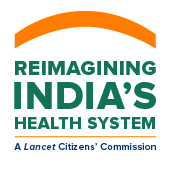In Conversation: Madhumitha Balaji, a clinical psychologist and researcher, working at Sangath, India.
June 14, 2021

Nowhere is the lack of universal health coverage (UHC) felt more keenly than it is for mental health conditions in India. This is largely due to the massive shortage of infrastructure and specialists to treat mental disorders, and the lack of wide spread availability of affordable and effective mental health care. As a researcher in this area, I have had the privilege of being associated with studies that have shed some light on how these challenges can be overcome – for example, they have demonstrated the feasibility of using non-specialist health workers for overcoming the treatment gap; and the cost-effectiveness of implementing community-based interventions for severe mental illness in rural populations and the integration of psychological treatments for depression in routine primary care settings. To some extent such solutions are being implemented in India, for example via the District Mental Health Programs, but there is a lot more to be do and a long way to go before we can claim to be close to achieving health coverage for mental health problems in India.
Since there can be ‘no health without mental health’, mental health care reforms are an integral part of achieving UHC in our country. Through my involvement with the Commission, I hope to explore the various paths and mechanisms by which this may take place in India.
Through the course of my work, I have observed that consultations with service users, families and health service providers have the potential to shape the development of interventions, sometimes even drastically alter them. These consultations, for example, have told us what outcomes are most important to service users, what qualities service providers should have in order to effectively deliver these interventions, and what specific treatment components and delivery mechanisms will work (or not work) in India. The Commission’s district-level case studies – which propose to understand the gaps and solutions to UHC from the views of people who use and deliver care in the health system – is therefore right up my alley! I am involved with designing and implementing the primary qualitative research component, which examines health system performance from the perspectives of citizens, service users, front-line workers, health care providers, administrators, and other key stakeholders.
The main challenges will be making health care accessible and affordable for the economically weaker sections, and strengthening the availability and quality of care in the public health sector.
I believe that this is the first time in India that such an inclusive, rights-based approach (that incorporates the voices of citizens – the persons who ultimately matter) – is being employed on such a massive scale to define UHC. This approach will make any findings we uncover, much more likely to reflect ground realities and priorities. I look forward to contributing to this timely and intriguing endeavor.
